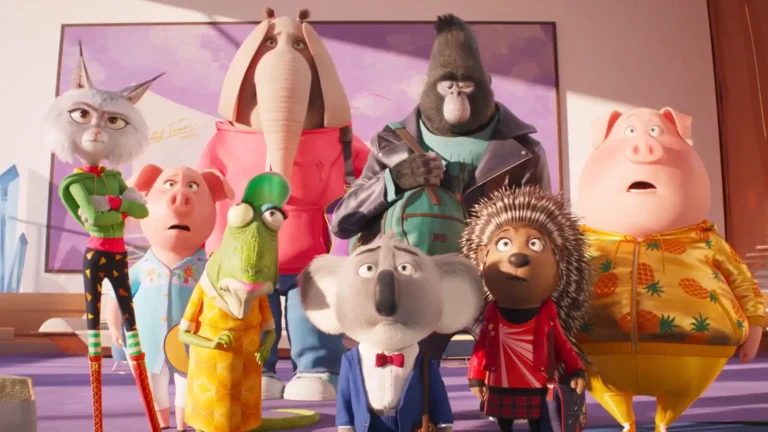 With a career spanning back more than seven years, you may be slightly confused as to why you haven’t heard of singer/songwriter Corneille (pronounced Cor-nay). With a truly unique story which has had a great influence on his unique style of music, he has lived in Germany, Rwanda and Canada at different points in his life, and faced unimaginable tragedy aged just 17 when he lost both of his parents and eleven siblings to the largest and most horrific genocide in modern history.Finding the strength from within himself to continue pursuing his career, Corneille made a conscious decision to begin producing French music, leaving himself virtually unheard of in the UK and America, but emerging an artist of Diamond-selling status in France and selling out arenas in other parts of the world.
With a career spanning back more than seven years, you may be slightly confused as to why you haven’t heard of singer/songwriter Corneille (pronounced Cor-nay). With a truly unique story which has had a great influence on his unique style of music, he has lived in Germany, Rwanda and Canada at different points in his life, and faced unimaginable tragedy aged just 17 when he lost both of his parents and eleven siblings to the largest and most horrific genocide in modern history.Finding the strength from within himself to continue pursuing his career, Corneille made a conscious decision to begin producing French music, leaving himself virtually unheard of in the UK and America, but emerging an artist of Diamond-selling status in France and selling out arenas in other parts of the world.
Now ready to pursue his childhood dreams of becoming a worldwide successful artist, Corneille has produced his debut English speaking album, The Birth of Cornelius. Flavour caught up with the singer to get an insight into what he’s all about.
Why have you called yourself Corneille instead of your name Cornelius?
I went to elementary school in Rwanda, and most of the kids had cute, little two syllable French, catholic names and I didn’t. So in an attempt to better fit in I translated what seemed to me to be a French translation of my name, and it just stuck with me. It actually served me well because when I started my French music career people thought I had somehow called myself Corneille in conjunction with the great French writer, but obviously I hadn’t.
You are defined as a Motown artist, do you feel that this label fits you well?
I don’t know, what is a Motown artist? Especially today because Universal Motown has obviously expanded, Lil’ Wayne is my label mate for God sake. I think if that’s what Motown is today in the sense that it is a mix of everything that is part of a musical culture, then yes I am a Motown artist.
So how would you define your music?
I can’t really define it. I’ve read so many things about how to categorise my music, I’ve heard soul, pop, world RnB and all kinds of things but its hard to put a label on my music because it’s a mix of genres and that is my greatest achievement as an artist. My music is exactly who I am, I am quite simply that confused!
Who are your influences?
They range from people like Sade, Sam Cooke, Nat King Cole, Danny Hathaway and Beethoven who my dad forced me to listen to when I was 13 years old. I didn’t get it back then but I get it now. I think the only thing I can’t really say I’m familiar with is Chinese traditional music, but everything else I’ve been into and that’s probably why my music has that eclectic feel to it.
In what ways has your diverse background influenced your music?
Obviously the physical places that I’ve spent time in has influenced my music, but I would like to say that more than those places it is the way that we as people listen to music in Rwanda. Until the mid 90s we only had one radio station that broadcast to close to 7 million people, so local dance music had to share the same rotation as music from our neighbours like Congo who had the most popular African artists at the time and at the same time we would listen to what we would call Western music and that ranged from the Beatles to Celine Dion going through to Stevie Wonder and ABBA. There was only one label to that music, Western music, so I never grew up putting music into genres and I think that’s what shaped my music more than anything.
How did you continue to focus on your music career after such tragedy in your personal life?
Its all really due to the fact that I was fortunate enough to grown up surrounded by loving parents and eleven siblings, which as I grow older and as I observe the world that we live in I realise is a luxury that not many people have. And so although I lost all of my family in the genocide under extreme circumstances I feel that I was left with more tools to keep going and to stay positive than people who still have people around them but are trying to get a little bit of that love.
Why did you make the decision to make French music?
Because I got to Montreal in 1997 and French Canada and English Canada are two completely different worlds and so it is impossible for English speaking artists to come out and have a career in French Canada. It’s getting better now but back then it was impossible. So we thought if the language was the only thing keeping us from a career why not just sing in French, and it really took off in a phenomenal way, and so having built an audience I followed up with a second French album and then I went back to my dreams as a 16 year old which was to make English music
When did you start learning English?
It’s self taught really, I listened to radio a lot and watched a lot of American boot leg TV shows. I think as I was developing an ear for melodies and arrangements I developed an ear for the language and gradually I really got involved and paid attention to the language, maybe because I knew I wanted to pursue a career in that language.
Why do you personally feel that it is important to break America?
Again it goes back to my child hood, most of the artists who I grew up listening to as I was developing my passion for music were American and therefore there is a great deal of that child hood dream wrapped up in America.
Do you think that your existing fans will feel offended by the fact that you were not satisfied with your status?
Oh some of them already have expressed that. It’s a natural thing especially in my case. I did something in French that hadn’t really been done before and I was able to bring together people of all ages, creeds and musical backgrounds who wouldn’t necessarily meet but met around the language, so the fact that I was making soul and RnB music in French which at the time was the most popular type of music in the world across the board, made them feel like I belonged to them. I think that’s a very natural phenomenon where wherever an artist starts out the local fans feel a sense of possession, but I think people are coming around now.
Man of This World describes how you have felt misunderstood in the past, why is this and why do you think that you will be understood in America?
I don’t know. Its kind of crazy to think like that I mean it’s overly optimistic. Not to be too cliché but America has shown a different face to the world in the last year and it’s way beyond electing an African American President. It’s more of an idea of a country that’s always been sort of resistant to letting other cultures in but is now opening up. I mean if you look at the numbers of popular artists in America who are not American, there’s not many that many but it’s changing slowly.
What is the concept behind your debut album The Birth of Cornelius?
There’s no concept at all. It just came at a time when I wanted to make an album in English and as I always do I put my life at that time on a record. So this album talks a lot about the greatest lessons that I’ve learned in life through love and through letting somebody else in in partnership with another person and the challenges and so that is pretty much the theme.
Did you ever think of translating your French albums into English?
Yes, I did consider it and my wife called me lazy and so I stopped considering it. She told me I was too young to be translating songs and when I was fifty I could do that.
You were in bands when you were coming up in your music career, why then did you decide to pursue a solo career?
It’s challenging to be in a band, I don’t know how these guys do it. I think when it comes to my music and my art I’m very stubborn and I have very very little space for compromise and it might be a flaw in some circumstances, but when I have an idea in my head I have a hard time altering it just for the sake of giving space to another person. If it’s not really bettering my music, I have a problem with that and so other than that just dealing with two, three other people in music is hard, for me anyways, and so I decided to have a solo career and also I think I had too many things to express that were too personal to impose them on my other band members.
What’s the story behind you being a Red Cross Canada spokesperson?
I was a spokesperson but now I’m a Goodwill Ambassador for UNICEF
Why do you think it is important to give back to society?
I really don’t have that down yet, I’m very confused about the whole thing just because I still don’t know how effective it is and I have felt that I was gaining more out of it as an artist than the people I was actually visiting, but until I have an answer and until I have either a network or an outlet that I actually control, I think its important to get involved because it beats doing nothing.
What do you hope to achieve in the near future?
Getting some sleep first and foremost because jet lag is killing me, and then seeing where this record takes me and seeing who the audience is going to be and who is going to enjoy it, and then writing for other people because I really enjoy doing that.
Corneille’s debut album, The Birth of Cornelius is available to buy in all good record stores now.
Words by Susanne Singh


